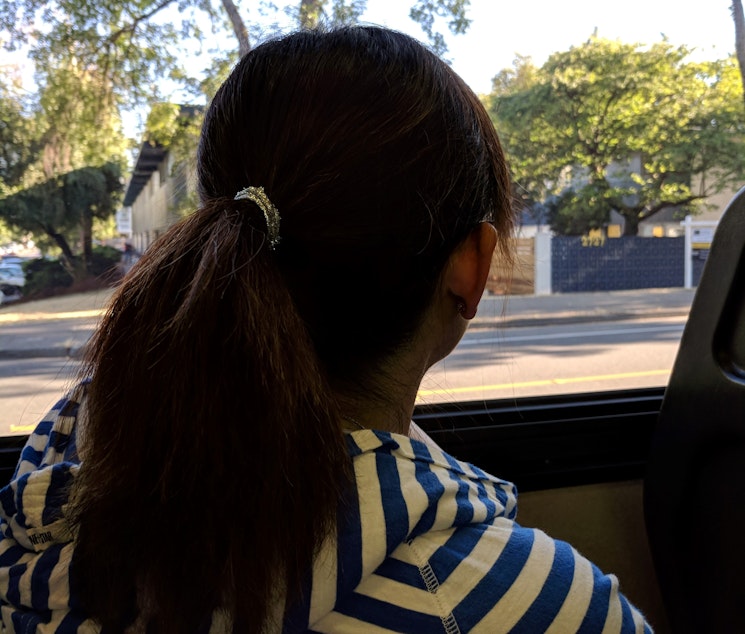A white woman slapped my mom on a Seattle bus. She picked on the wrong woman

M
y mom, Jenny Huang, was riding the 41 bus from Northgate to Chinatown when a white woman slapped her and started yelling at her.
Hearing my mom's story about how she responded to a racist attack taught me not to back down.
When the woman slapped my mom, she was sleeping. “I never had this problem," my mom told me. "I don’t know why she yelling me. I don’t understand.”
The woman slapped her because my mom set her handbag on the seat next to her.
My mom was frozen from the shock and confusion. She said the bus driver and other passengers just watched.
No one did anything to help my mom, but she stood up and fought back for herself. She knew that doing something was better than nothing.
My mom told the woman that she could have talked politely or touched her gently, and she would have moved her bag. She asked the woman, "How come you are so rude to me?"
Sponsored
I’ve never seen my mom back down from a fight. She always stands up when she sees something wrong. My mom is not the polite type.
In media, I often see Asians portrayed as polite or unwilling to fight back. Asians are often depicted as stereotypes rather than real, complex people. And these stereotypes may influence how people decide to treat us.
I encountered many of those stereotypes on my first day of driving school. I sat in the old Toyota with my instructor, driving through residential streets. She would occasionally tell me to turn, and then she started asking questions: Does your dad work at Amazon or Microsoft? Does your dad drive a Mercedes or BMW, because a lot of Asians drive those? Do you get all A’s in school?
I’m a fluent English speaker, but I couldn’t respond with more than a few words. I didn’t say much because I was shocked at her questions. Finally, she asked whether I was an only child because of the one child policy in China. That’s when my feeling of shock changed. It became anger. But I still couldn’t say anything. Why did she think she could ask me those kinds of questions?
After that experience with my driving instructor, I related to my mom’s experience. I was trapped inside a car with nowhere to go.
Sponsored
I wanted to fight back against the stereotypes just like my mom had done, so I went back to the driving school to tell the head of the school about what had happened. I could tell she was shocked. She told me that she was going to have a talk with my driving instructor later that day. I never saw the instructor again.
When I was small, I was scared to fight back when someone made a racist comment. I wanted to fit in. I was scared that if I stood up to anyone, I wouldn’t be part of the group, so I didn’t stand up for myself.
But when I reflected on my mother’s assault, I realized that standing up for myself is more than justified. When I’m confronted with racism, I might be looked down upon if I stand up.
But now, I’m no longer scared.
This story was created in KUOW's RadioActive Intro to Journalism Workshop for 15- to 18-year-olds at Jack Straw Cultural Center, with production support from Sonya Harris. Edited by Jeannie Yandel.
Sponsored
Find RadioActive on Facebook, Twitter and Instagram, and on the RadioActive podcast.


